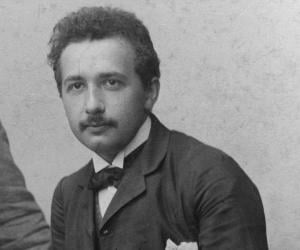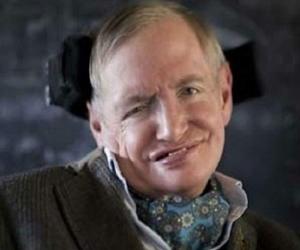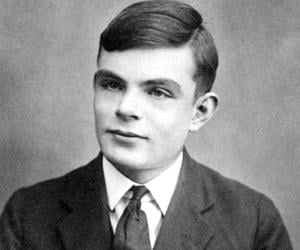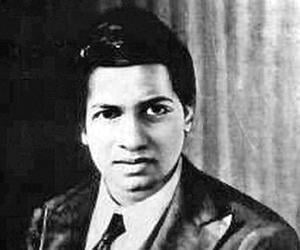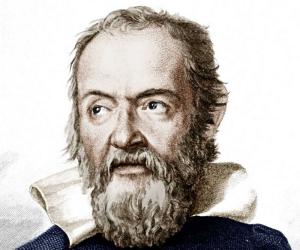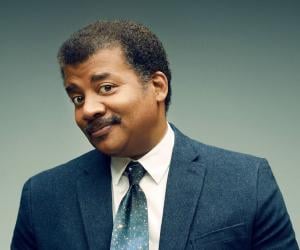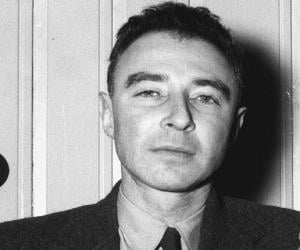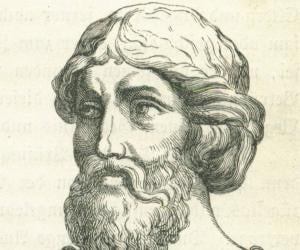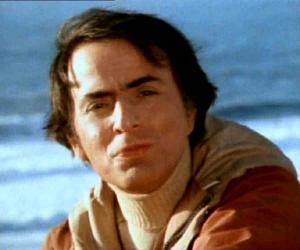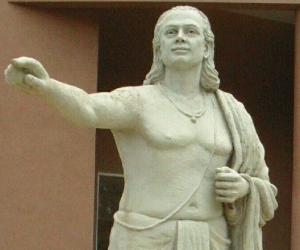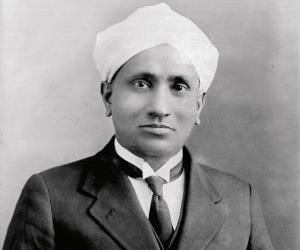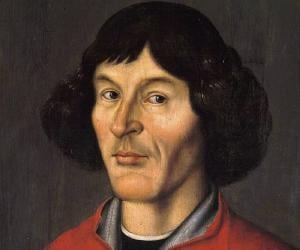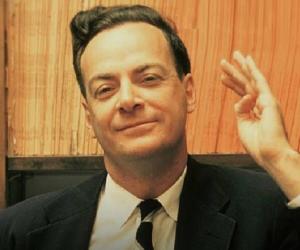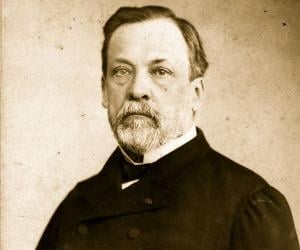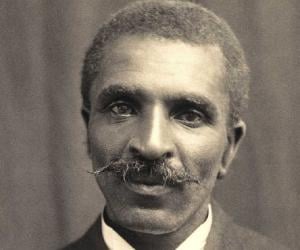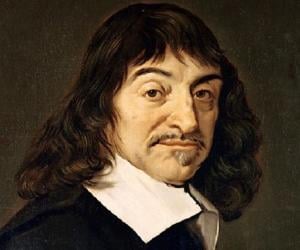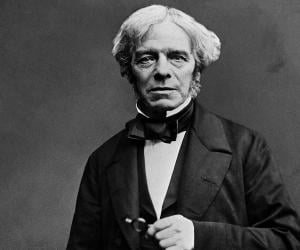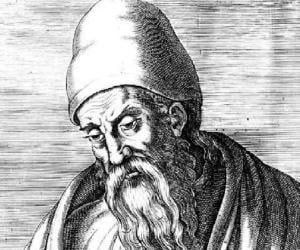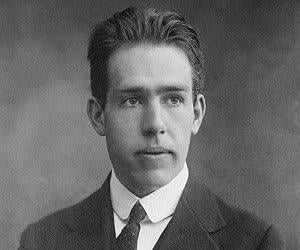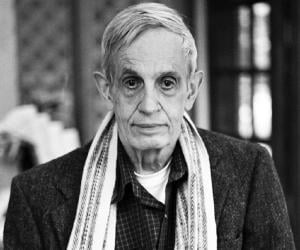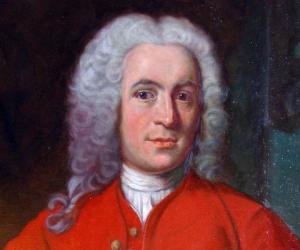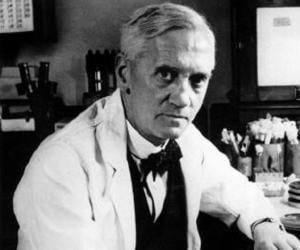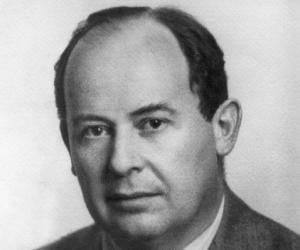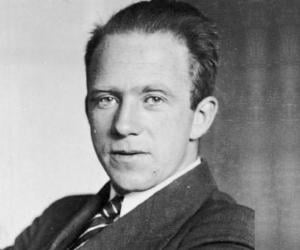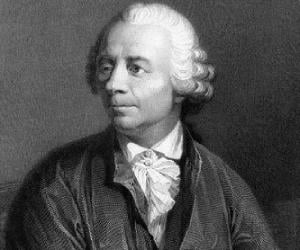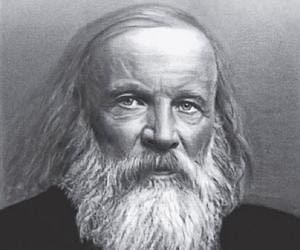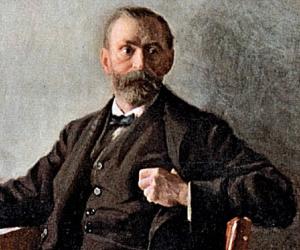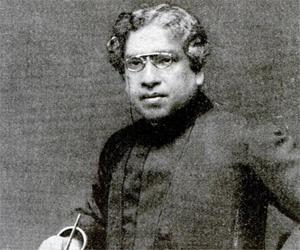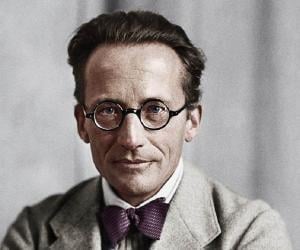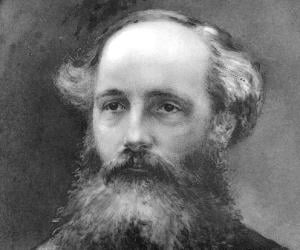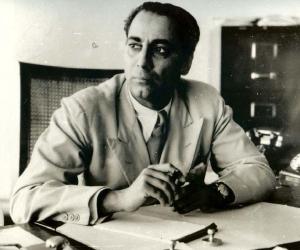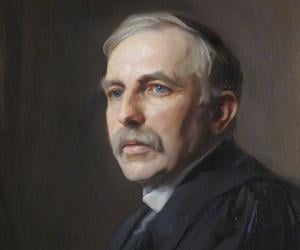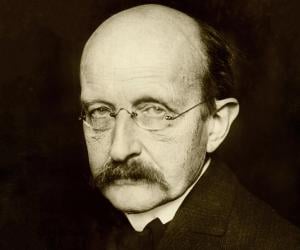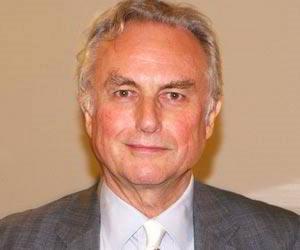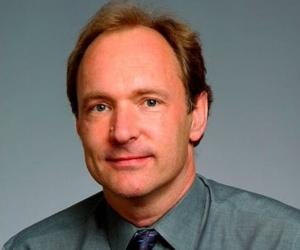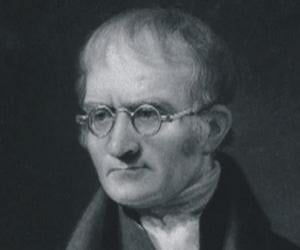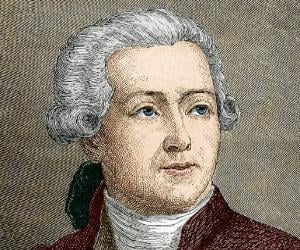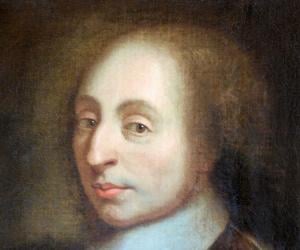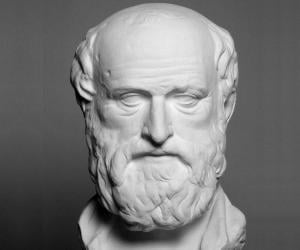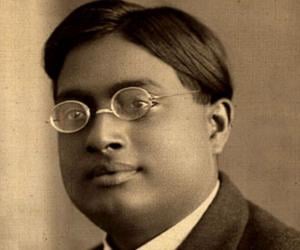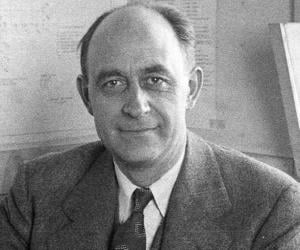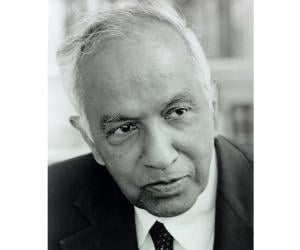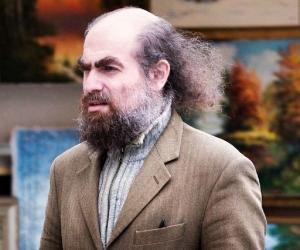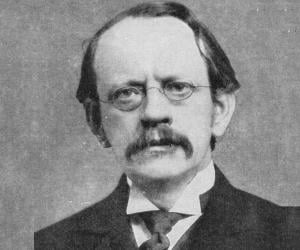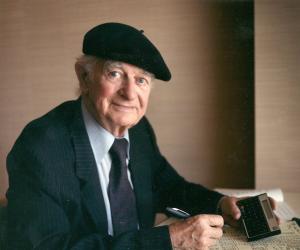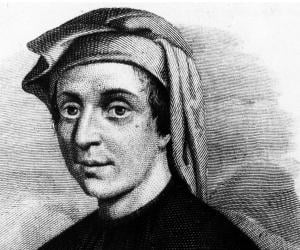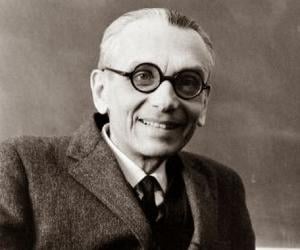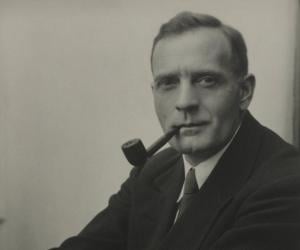Stephen Hawking was an English theoretical physicist and cosmologist, who despite being afflicted motor neurone disease that severely limited his physical abilities, was able to build a phenomenally successful career. He was the first to set out a theory of cosmology explained by a union of the general theory of relativity and quantum mechanics. Hawking was ranked 25 in the BBC's poll of the 100 Greatest Britons, in 2002.
Regarded as the father of computer science and artificial intelligence, Alan Turing was a distinguished mathematician and logician. During WWII, he successfully broke the challenging German Enigma machine codes thereby reducing the duration of war by a couple of years. The scientist, who was convicted for being gay, has been an inspiration for numerous films, plays and novels.
A self-taught genius Indian mathematician, Srinivasa Ramanujan is known for his contributions to mathematical analysis, number theory and continued fractions. Born into a humble family, the celebrated mathematician struggled with poverty but still managed to publish first of his papers in the Journal of the Indian Mathematical Society. Later, his collaboration with English mathematician G. H. Hardy proved very productive.
An Italian astronomer, engineer, and physicist, Galileo Galilei is widely regarded as the father of observational astronomy, the father of the scientific method, the father of modern physics, and the father of modern science. He is credited with popularizing the telescope, which changed the course of history.
Public Welfare Medal-winning astrophysicist and academic Neil deGrasse Tyson hosted shows such as NOVA ScienceNow, Cosmos: A Spacetime Odyssey, and Star Talk. He is the director of Hayden Planetarium and contributed to the dismissal of Pluto’s status as the ninth planet. He has also written a monthly column as "Merlin.”
Hailed as a brilliant scientific mind, American physicist J Robert Oppenheimer, led the Manhattan Project which resulted in the development of atomic bomb during the World War II. The bombs were dropped on the Japanese cities of Hiroshima and Nagasaki in 1945. However, Oppenheimer was in a constant conflict over the moral issue of the weapons of mass destruction and rallied against nuclear proliferation.
Pythagoras was an Ionian Greek philosopher. He is credited with many scientific and mathematical discoveries, including the Sphericity of the Earth, the Theory of Proportions, the five regular solids, Pythagorean tuning, and the Pythagorean Theorem. Pythagoras influenced other philosophers like Plato and Aristotle. His philosophy also had a major impact on personalities like Isaac Newton, Johannes Kepler, and Nicolaus Copernicus.
Nicolaus Copernicus was a mathematician and astronomer. He is credited with formulating Heliocentrism, which led to the Copernican Revolution. Although Aristarchus of Samos had formulated Heliocentrism 18 centuries earlier, Copernicus was responsible for popularizing it. Copernicus is also credited with formulating an economic principle, which was later called Gresham's law.
Theoretical physicist Richard Feynman won the Nobel Prize in Physics in 1965, along with Julian Schwinger and Shin'ichirō Tomonaga, for his research on quantum electrodynamics. He also contributed to the development of the atomic bomb. Feyman made it to Physics World’s list of the 10 greatest physicists of all time.
Michael Faraday was an English scientist known for his contribution to the study of electrochemistry and electromagnetism. Considered one of the most influential scientists ever, Faraday's inventions of electromagnetic rotary devices established the basis for electric motor technology. His research also helped understand the concept of the electromagnetic field. Ernest Rutherford called him one of the greatest scientific discoverers ever.
Swedish botanist and lecturer Carl Linnaeus, who established the concept of binomial nomenclature, or the system of naming organisms, is also known as the father of modern taxonomy. His system of classification is known as Linnaean taxonomy. He was the first to include humans and apes under the header Anthropomorpha.
Alexander Fleming was a Scottish microbiologist and physician. He is credited with discovering penicillin, the world's first effective antibiotic substance; a discovery that changed the course of history. He also discovered lysozyme, an antimicrobial enzyme which forms part of the innate immune system. In 1999, Fleming was named in Time magazine's 100 Most Important People of the 20th century list.
Leonhard Euler was a Swiss physicist, mathematician, logician, geographer, astronomer, and engineer. He is credited with making influential and important mathematical discoveries, such as graph theory and infinitesimal calculus. Widely regarded as one of the greatest and most prolific mathematicians of all time, Leonhard Euler also made pioneering contributions to analytic number theory and topology.
Alfred Nobel was a Swedish chemist, engineer, and inventor. A prolific inventor, he held 355 different patents. Most popular as the inventor of dynamite, he was concerned with how he would be remembered after his death and bequeathed his fortune to the Nobel Prize institution. A wide traveler, he was proficient in several languages.
Indian physicist, biologist, and plant physiologist Jagadish Chandra Bose revolutionized science with his research on how plants and animals react to external stimuli. He founded the Bose Institute, made pioneering contribution to the field of radio and microwave optics, and also penned one of the first works of Bengali science fiction.
Scottish physicist James Maxwell’s contributions included the formulation of the classical theory of electromagnetic radiation and the production of the first light-fast color photograph. His Maxwell–Boltzmann distribution explored the kinetic theory of gases. He has also written poems and was an Elder of the Church of Scotland.
Padma Bhushan-winning physicist Homi Bhabha revolutionized the Indian nuclear program singlehandedly. Born into an affluent family, he was educated at Cambridge. Initially geared toward a career in mechanical engineering, he later drifted to physics, eventually contributing to the formation of TIFR. The Bhabha Atomic Research Centre is named after him.
New Zealand physicist Ernest Rutherford is remembered as the father of nuclear physics. His discovery of radioactive half-life and of radon, and his differentiation of alpha and beta radiation, won him the Nobel Prize in Chemistry in 1908. Element 104 was named rutherfordium in his honor.
This 17th-century German mathematician, astronomer, and astrologer is remembered for his pathbreaking work on optics. He invented a developed version of the refracting telescope. He also laid down Kepler's laws of planetary motion and wrote Astronomia Nova, Harmonices Mundi, and Epitome Astronomiae Copernicanae.
German theoretical physicist Max Planck is remembered for originating the quantum theory of physics, which earned him the 1918 Nobel Prize in Physics. He laid down concepts such as the Planck constant and the Planck postulate. The Kaiser Wilhelm Society was later renamed Max Planck Society in his honor.
Richard Dawkins is a British ethologist, author, and evolutionary biologist. He first achieved popularity after publishing his book, The Selfish Gene, which is credited with popularizing the gene selection theory. The book is also credited with introducing the term meme. In 2006, he established the Richard Dawkins Foundation for Reason and Science to promote secularism and scientific literacy.
Widely known as ten inventor of the world wide web, Tim Berners-Lee made the first communication between an HTTP client and server through the internet in 1989. He is associated with various organizations, such as the W3C and the World Wide Web Foundation, and has received the knighthood, too.
John Dalton was an English chemist, physicist, and meteorologist most famous for introducing the atomic theory into chemistry. He also contributed a lot to the study of color blindness, sometimes referred to as Daltonism in his honor. He was the first scientist to refer to the smallest particle of matter as an “atom.” He was a Quaker and lived modestly.
Antoine Lavoisier was a French chemist and nobleman. He played a crucial role during the chemical revolution of the 18th-century. Widely regarded as the father of modern chemistry, Lavoisier had a major influence on the history of biology as well as the history of chemistry. He also helped build the metric system.
Blaise Pascal was a French physicist, mathematician, philosopher, and inventor. A child prodigy, Pascal's work on projective geometry, at the age of 16 is commendable. He is one of the earliest inventors of the mechanical calculator, which he did when he was still a teenager. His work on probability theory influenced the development of social science and modern economics.
Greek polymath Eratosthenes of Cyrene was a mathematician, poet, geographer, music theorist, and astronomer. He also served as the Library of Alexandria’s chief librarian. He was also the first to calculate the Earth’s circumference and the tilt of the Earth's axis. Nicknamed Pentathlos, he also invented many scientific terms.
Best known for working with Albert Einstein to form Bose–Einstein statistics, Indian scientist Satyendra Nath Bose was a master of quantum mechanics. He played the esraj, loved poetry, and had mastered quite a few languages. The Padma Vibhushan winner was also made a Fellow of The Royal Society.
Remembered for his varied contribution to astrophysics, Subrahmanyan Chandrasekhar is perhaps best known for his work on the evolution of massive stars. Today known as Chandrasekhar limit, it contributed to final understanding of supernovas, neutron stars, and black holes. A prolific writer, he also did significant work on energy transfer by radiation in stellar atmospheres and convection on solar surface.
J. J. Thomson was a British physicist credited with the discovery of the electron, the first subatomic particle to be discovered. He was awarded the Nobel Prize in Physics in 1906 for his work on the conduction of electricity in gases. In 1884, he was appointed Cavendish Professor of Physics at the University of Cambridge.
Only person to win two unshared Nobel Prizes, Linus Carl Pauling was an American theoretical physical chemist, who received the 1954 Nobel Prize in Chemistry for his work on nature of chemical bond and 1962 Nobel Prize for Peace for his efforts to stop nuclear weapon testing. Also a prolific writer and educator, he has published 1,200 books and papers.
Hailed as one of the greatest logicians since Aristotle, Kurt Gödel was Austrian-born American mathematician, logician, and philosopher, who earned international stardom for his incompleteness theorem. Also credited with developing a technique called Gödel numbering, he later started working on Mathematical Platonism, a philosophical theory that failed to attract wide acceptance.
While the Hubble Telescope, named after Edwin Powell Hubble, reminds one of his contribution to astronomy, he failed to get a Nobel Prize, as back in his time, the Nobel Committee didn’t recognize astrophysics as a valid science. He is best remembered for his work on galaxies and extragalactic astronomy.
